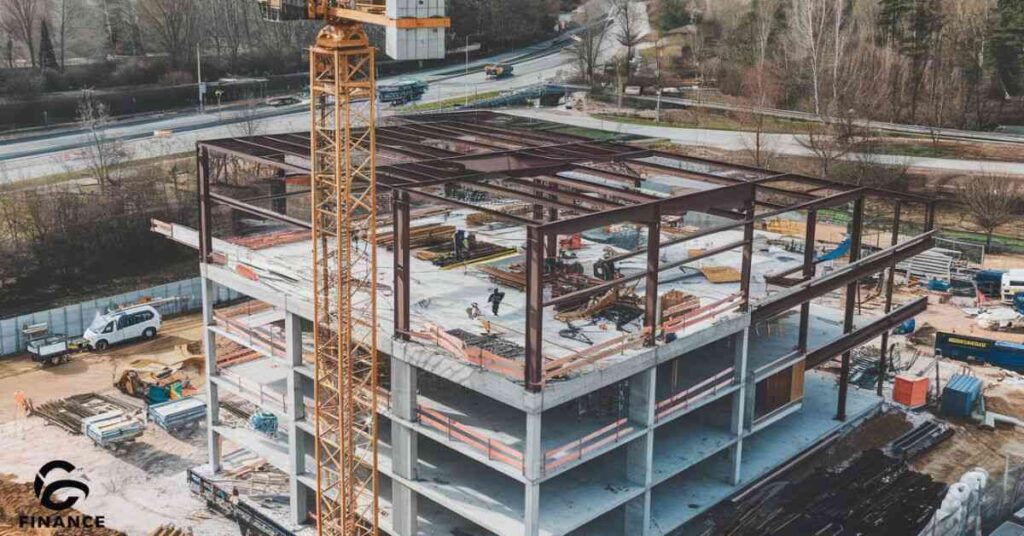Accession in real estate often puzzles property owners and investors. Misunderstanding this concept can lead to unexpected ownership disputes and financial losses. Without proper knowledge, you might overlook valuable property enhancements or fail to protect your rights.
This comprehensive guide demystifies accession in real estate, explaining its legal foundations and practical applications. You’ll learn how accession affects property rights, value, and transactions. Armed with this information, you can make informed decisions, avoid legal pitfalls, and maximize the potential of your real estate investments.
The Legal Foundation of Accession in Property Law
Accession in real estate has deep historical roots. It emerged from common law traditions centuries ago. This legal doctrine governs how property ownership changes when additions occur. Courts have refined accession principles over time. Today, these rules help resolve disputes about property enhancements. Understanding this legal foundation is crucial for property owners and investors.
Key Takeaways: Essential Points About Accession in Real Estate
Accession in real estate can significantly impact property value. It determines who owns improvements or additions to property. Key principles include the importance of original ownership and good faith actions. Accession affects various types of property, from land to personal items. It can occur through natural events or human actions. Understanding these points helps protect property rights.
Accession Defined: Unpacking the Concept in Real Estate Context
Accession in real estate refers to the process of property value enhancement. It occurs when something is added to or mixed with existing property. This addition becomes part of the original property. Accession can happen naturally or through human action. It often leads to changes in ownership rights. The concept applies to both land and personal property.
The Role of Natural Forces in Real Estate Accession
Natural forces can cause accession in real estate. Rivers may shift, changing property boundaries. Storms might deposit sand on beachfront properties. Volcanic activity can create new land. These natural changes affect property ownership. They often lead to legal questions about who owns the new or altered areas. Understanding natural accession is crucial for owners of properties near water or in changing landscapes.
Human-Induced Accession: Improvements and Additions
People can cause accession by improving or adding to property. Building a house on land is a common example. Installing fixtures in a building also counts. Even planting trees or creating gardens can lead to accession. These improvements typically increase property value. They also raise questions about ownership rights. Property owners should understand how their actions might affect their legal rights.
Accession in Action: 5 Common Examples in Real Estate

Accession in real estate takes many forms. Common examples include building structures on land and changes in water boundaries. Discovering underground resources like minerals is another case. Digital assets and improvements to personal property also fall under accession. These examples show how diverse and complex accession can be. Understanding them helps property owners navigate potential legal issues.
Property Improvements: Building Structures on Land
Building structures on land is a classic example of accession. When someone constructs a house on their property, it becomes part of the land. This principle applies to other buildings too, like garages or sheds. The new structure typically belongs to the landowner. This rule can get complicated if someone builds on land they don’t own. Property owners should be aware of how construction affects their rights.
Riparian Rights: Changes in Water Boundaries
Riparian rights deal with properties near water bodies. Rivers and coastlines can change over time. These changes can add or remove land from a property. Accession rules determine who owns the new land. They also address cases where land is lost to water. Owners of waterfront properties need to understand these principles. They affect property boundaries and value.
Mineral Rights: Subsurface Resource Discovery
Finding valuable resources underground can trigger accession rules. Oil, gas, or minerals discovered on a property often belong to the landowner. However, this can vary based on local laws. Some areas separate surface and mineral rights. In such cases, different parties might own the land and its underground resources. Property buyers should check mineral rights before purchasing land.
Intangible Property: Digital Asset Accession
Accession also applies to digital and intellectual property. Creating a website for a business adds value to that business. Developing software for a company usually means the company owns it. These digital assets become part of the larger property. Understanding digital accession is crucial in today’s tech-driven world. It affects ownership rights in online businesses and digital creations.
Embroidery and Improvements to Personal Property
Accession rules cover improvements to personal property too. Adding embroidery to clothing is a simple example. The thread becomes part of the garment. More complex cases might involve repairing or upgrading valuable items. The general rule is that improvements belong to the original owner. However, exceptions exist based on the value added and the improver’s intent. These principles help resolve disputes over enhanced personal property.
6 Legal Rules Governing Accession in Real Estate
Accession in real estate follows specific legal rules. These rules help determine who owns property improvements. They cover various scenarios, from natural changes to human-made additions. Understanding these rules is crucial for property owners. They guide courts in resolving ownership disputes. Knowing these principles can prevent legal conflicts and protect property rights.
The Principle of Accession: Original Property Ownership
The main rule of accession states that additions belong to the original property owner. This applies to both natural and artificial additions. For example, if a tree grows on your land, you own it. If someone builds a shed on your property, you usually own that too. This principle aims to protect the rights of property owners. It prevents others from claiming ownership of improvements.
Good Faith Considerations in Accession Cases
Good faith plays a big role in accession cases. It refers to actions taken without knowing they’re wrong. For instance, someone might improve a property thinking they own it. If they acted in good faith, courts might treat them more favorably. They might get compensation for their improvements. Good faith can affect how courts decide who owns the improvements.
Bad Faith and Financial Institution Involvement
Bad faith in accession means knowingly improving someone else’s property. This often leads to losing rights to the improvements. Financial institutions can also be involved in bad faith scenarios. For example, a bank might wrongly take possession of property. In such cases, the original owner usually keeps rights to any improvements. Courts generally favor the innocent party in bad faith situations.
Raw Material Addition and Ownership Rights
Adding raw materials to property can change ownership rights. If you use your materials to improve someone else’s property, it gets complicated. Generally, the property owner gains ownership of the improvements. However, you might get compensation for your materials. The specific outcome depends on the situation and local laws. It’s important to clarify ownership before making significant improvements.
Substantial Damage in Accession Situations
Sometimes, accession can cause major damage to the original property. In these cases, legal rules might change. The person who caused the damage might become responsible for the property. They might have to compensate the original owner. Courts consider the extent of damage and its impact on property value. These situations often lead to complex legal disputes.
Specific Statutes and Regulations in Accession
Many areas have specific laws about accession. These laws can vary by state or country. They might cover unique situations like coastal properties or mineral rights. Some regulations focus on protecting property owners. Others aim to encourage property improvements. Knowing your local accession laws is crucial for property owners and investors.
3 Examples of Accession in Real Estate Transactions
Accession in real estate affects many property transactions. It can change property values and ownership rights. Here are three common examples. They show how accession principles work in real-world situations. Understanding these can help buyers and sellers make informed decisions. They also highlight the importance of legal advice in complex transactions.
Accession Deeds: Clarifying Ownership in Property Transfers
Accession deeds are legal documents used in property transfers. They clarify who owns improvements or additions to a property. For example, when selling a house with a new extension, an accession deed might be used. It ensures both buyer and seller agree on what’s included in the sale. These deeds prevent future disputes about property ownership. They’re especially useful for properties with recent improvements.
Property Valuation: Impact of Accession on Real Estate Worth
Accession can significantly affect property value. For instance, discovering oil on land can greatly increase its worth. Building a pool or renovating a house can also boost value. Appraisers consider these additions when valuing property. This impacts sale prices and property taxes. Understanding accession’s effect on value helps owners make smart investment decisions. It’s also crucial for accurate property assessments.
Government Actions: Eminent Domain and Police Powers
Government actions can lead to accession scenarios. Eminent domain allows the government to take private property for public use. They must provide fair compensation. Police powers let governments regulate property use for public safety. These actions can add or remove value from properties. For example, building a highway nearby might increase a property’s value. Understanding these powers helps property owners protect their rights.
Read This Blog: Unlocking the Potential of STR MEANING Real Estate: A Comprehensive Guide
The Role of Real Estate Professionals in Accession Cases
Real estate professionals play a crucial role in accession cases. They help clients understand complex ownership issues. Agents and brokers must know how accession affects property rights. They guide buyers and sellers through transactions involving property improvements. Their expertise can prevent legal disputes. Real estate professionals also work with lawyers to resolve accession conflicts. Their knowledge protects clients’ interests in property deals.
Understanding Accession for Better Client Service
Knowledge of accession in real estate is vital for top-notch client service. Agents who understand accession can offer better advice. They can explain how improvements affect property value. This knowledge helps clients make informed decisions. Agents can spot potential accession issues early. They can guide clients to seek legal help when needed. Understanding accession sets apart skilled real estate professionals.
Navigating Accession Disputes in Real Estate Transactions
Accession disputes can complicate real estate transactions. Professionals must know how to handle these conflicts. They often work with legal experts to resolve issues. Clear communication is key in managing disputes.
Agents might suggest mediation or arbitration. They help clients understand their rights and options. Quick resolution of accession conflicts keeps transactions on track. It also maintains good relationships between buyers and sellers.
Also Read: Opportunity Cost: How to Make Smarter Financial Choices
International Perspectives: Accession in Global Real Estate
Accession in real estate varies across countries. Different legal systems handle property rights differently. In some nations, land and building ownership can be separate. Others follow similar rules to the U.S. International investors must understand these differences. Local laws can affect property rights and values. Global real estate deals require careful consideration of accession principles.
Accession in Different Legal Systems: A Comparative View
Legal systems worldwide treat accession differently. Common law countries like the U.S. and UK have similar approaches. Civil law nations in Europe might have distinct rules. Islamic law has its own principles for property rights.
Some countries prioritize community rights over individual ownership. Understanding these differences is crucial for international property deals. It helps prevent misunderstandings and legal issues.
Future Trends: Accession in the Evolving Real Estate Landscape
The concept of accession in real estate is evolving. New technologies are changing how we view property. Virtual real estate in digital worlds raises new questions. Climate change might affect coastal property rights.
Urban development is creating complex vertical properties. These trends will shape future accession laws. Property owners and professionals must stay informed about these changes. Adapting to new realities will be key in protecting property rights.
FAQ
What is the difference between accession and adverse possession?
Accession involves additions to property, while adverse possession is claiming ownership through long-term occupation. Accession typically benefits the original owner, whereas adverse possession can transfer ownership to an occupant.
How does accession affect property taxes?
Accession can increase property value, potentially leading to higher property taxes. Improvements or additions to property through accession may result in a reassessment of the property’s taxable value.
Can accession principles be modified by contract?
Yes, parties can modify accession principles through contracts. Agreements can specify ownership rights for improvements or additions, overriding default accession rules.
What should property owners know about accession to protect their rights?
Property owners should understand local accession laws and document all improvements. They should clarify ownership of additions in writing, especially when allowing others to make improvements.
How do courts typically rule in accession disputes?
Courts often favor the original property owner in accession disputes. They consider factors like good faith, value of improvements, and specific circumstances when making rulings.
Conclusion
Accession in real estate is a complex but crucial concept for property owners and investors. It affects ownership rights, property value, and legal disputes. Understanding accession helps protect your interests and make informed decisions.
As property laws evolve, staying informed about accession principles is essential. Whether you’re buying, selling, or improving property, knowledge of accession can save you from potential legal headaches and financial losses.

Howdy, editor at FinanceEon.com, brings over a decade of financial journalism experience. He ensures accuracy and insightful analysis, guiding a team on market trends and investment strategies.







